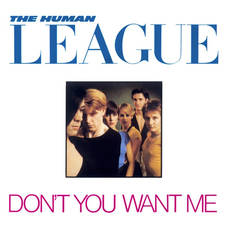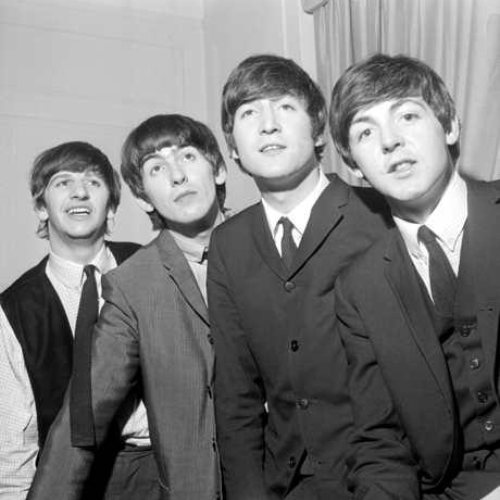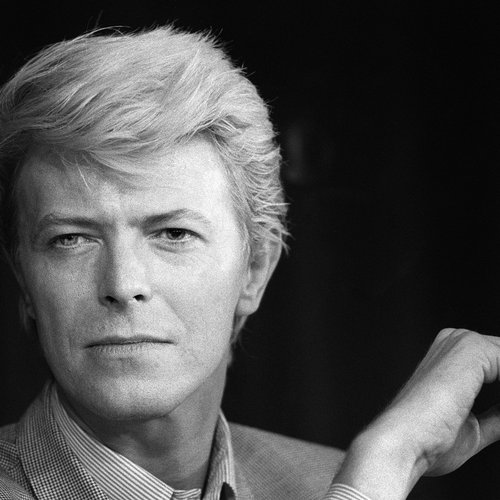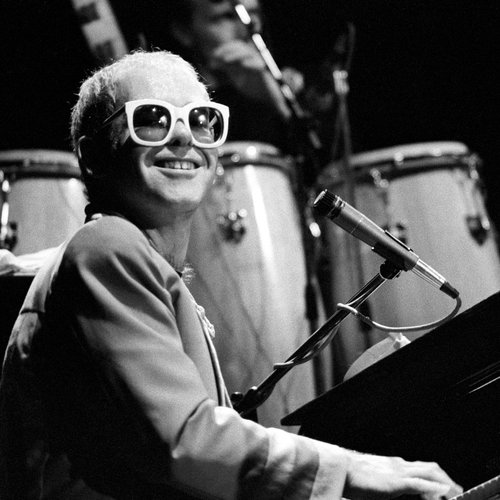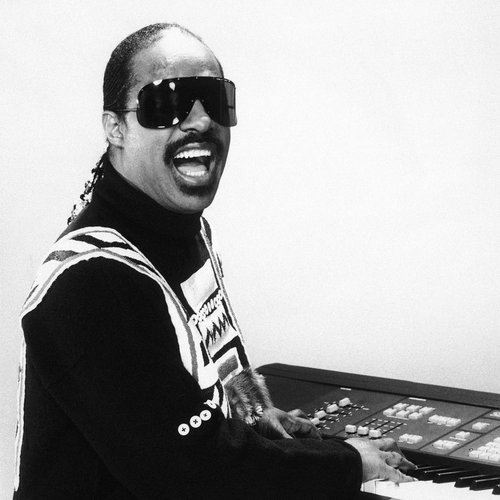How The Beatles became the ultimate Motown band
23 May 2025, 11:59

A closer look at the connections between Merseyside and Motown.
Listen to this article
Yes, we know that The Beatles were never actually part of Motown – either as a band or as individuals.
After that infamous failed audition at Decca ("guitar groups are on their way out"), George Martin signed the band for EMI subsidiary Parlophone in 1962
- Martha Reeves opens up about fighting racism to bring Motown to the world
- Were The Beatles in Disney's classic movie The Jungle Book?
- Listen to the Gold Radio 60s Live Playlist on Global Player, the official Gold app
That's where they stayed until they formed Apple Records in 1968, with EMI still dealing with distribution.
Over in the US things started off in messy fashion with the band bouncing form Vee-Jay and then to Swan Records, before Capitol took the band on in 1964. Again, Apple Records took over from The Beatles on.
So where on earth do we get off with calling The Beatles the ultimate Motown band?
Well, despite not actually being signed to the band, their two-way links to the whole sound of Motown is absolutely vital to the story of The Beatles.

You Really Got A Hold On Me (Anthology 1 Version)
While they're rightly credited for mashing up the influence of early rock 'n' roll and skiffle with their own songwriting, you could hear the influence of Motown on the sound of the Beatles from the very beginning.
What was it that bound these two geographically diverse movements of Motown and Merseybeat?
British label Oriole Records represented Tamla Motown on these shores and with its busy docks, Merseyside was the biggest source of Motown records in the UK.
Mersey Beat magazine founder Bill Harry spoke to Record Collector in 2009 about the links between these two centres of early 1960s pop.

The Beatles - Money! (Thats What I Want) [Colorized, Remastered]
"The Tamla Motown numbers were included in the repertoire of the Liverpool bands," he explained.
"They adapted the songs to fit in with the developing Liverpool sound, the basic three guitars/drums/harmony lineup which produced a hybrid sound which I was to call 'the Mersey Motown sound'."
And The Beatles made that Motown connection explicit with a number of covers of Motown originals during their early live shows. They recorded a few for their radio sessions.
They recorded a few for their radio sessions and even laid down a trio for one of their albums.

The Beatles — Please Mr. Postman
While six of the 14 songs on The Beatles debut Please Please Me were covers, none were Motown originals. It was on the follow-up With The Beatles that they really showed off that side of their sound.
With The Beatles included versions of 'You Really Got A Hold on Me' (originally by The Miracles), 'Money (That's What I Want)' (Motown's first hit, released by Barrett Strong in 1959, and actually a song performed at that Decca audition) and 'Please Mr Postman' (a hit for The Marvelettes).
And the Motown groups appreciated the hat-tip.
"When they recorded it, it was one of the most flattering things that ever happened to me," said Smokey Robinson of the Lennon-sung 'You Really Got A Hold on Me'.
"I listened to it over and over again, not to criticise it but to enjoy it... They were not only respectful of us, they were down-right worshipful.

Eleanor Rigby
"Whenever reporters asked them about their influences, they’d enter into a euphoria about Motown. I dig them, not only for their songwriting talent, but their honesty."
Even beyond the straight Motown covers, the rest of the album betrayed the influence of Berry Gordy's label.
There was the George Harrison-sung 'Devil in Her Heart', which had been released by Detroit band The Donays, and a rollicking version of Chuck Berry's 'Roll Over Beethoven'.
As on the band's cover of 'Twist & Shout' – made famous by The Isley Brothers – on Please Please Me, you could also hear the influence of Motown on the self-penned songs like 'All I've Got To Do', 'It Won't Be Long' and 'I Wanna Be Your Man'.

We Can Work It Out
The following year as The Beatles went out on the road, they asked that Mary Wells be added to the bill for their UK tour that autumn.
For 1964's A Hard Day's Night, The Beatles stuck to Lennon-McCartney numbers but that didn't mean they'd left the covers behind completely.
There were no more Motown songs, but Beatles For Sale featured Little Richard's 'Kansas City/Hey-Hey-Hey-Hey!' and Chuck Berry's 'Rock and Roll Music'.
Help! boasted Larry Williams 'Dizzy Miss Lizzy. These unabashed rock 'n' roll numbers arguably had a smidge of that Tamla sound in them.

You Can't Do That
After that it was (almost) all self-penned stuff for The Beatles, though it's worth mentioning that the influence of Chuck Berry's 'You Can't Catch Me' on John Lennon's 'Come Together' didn't go unnoticed by critics OR lawyers.
The truth is that the sound of Motown was a crucial building block in 1960s pop music. Everyone was influenced by Motown.
But where The Beatles' intertwining with Motown gets even more interesting is when the influence flowed back in the other direction.
Motown artists seemed to love The Beatles every bit as much as The Beatles loved Motown.
There are thousands and thousands of covers of Beatles songs out there ('Yesterday' is said to be one of the most-covered songs of all time).

Yesterday
But it's the Motown covers of the Fab Four that have really stood the test of time.
They almost all manage to keep the joyous, experimental, tune-heavy spirit of the originals and at the same time turn them into something unique – in this case giving them that Motown feel.
Produced by Berry Gordy, was somewhat rushed A Bit of Liverpool album by The Supremes, which among covers of various British Invasion numbers (plus two Motown originals that Brits had covered), were FIVE Beatles numbers.
But it was when you looked at the whole contribution fromo the Motown stable that you could really appreciate the cross-pollination.

Pure Smokey
Many of these were later collected on the 1995 CD Motown Meets The Beatles, which really is a must-have for any fan of The Beatles OR Motown.
It collects 14 covers of Beatles songs by Motown acts – and it was the top-tier of Motown that was covering those songs, too.
There are also three post-Beatles songs to round things out, with one each for John Lennon, Paul McCartney and George Harrison ('Imagine' by Diana Ross, 'My Love' by Junior Walker, and 'My Sweet Lord' by Edwin Starr, respectively).
That means tracks from The Supremes, The Four Tops, Stevie Wonder, The Temptations, Marvin Gaye, Syreeta, Smokey Robinson & The Miracles, Martha Reeves & The Vandellas, and Gladys Knight And The Pips.
The criss-crossing of influence continued over the years. Paul McCartney would collaborate with one-time Motown artists Michael Jackson and Stevie Wonder.

Money (John Lennon)
Meanwhile, George Harrison shared his love for Smokey Robinson with the tack 'Pure Smokey' on Thirty Three & 1/3. album in 1975, having already riffed on Robinson's work with the previous album's 'Ooh Baby (You Know That I Love You)'.
George Harrison dedicated Ooh Baby (You Know That I Love You) on his Extra Texture album to Smokey Robinson. He also wrote about him in his song Pure Smokey on the 33 1/3 album.
John Lennon performed old Beatles favourite 'Money' at one of his rare solo shows when he played live in Toronto in 1969.
So, when you look at the influence of Motown on The Beatles, and The Beatles on Motown, we're happy calling them the Ultimate Motown Band* (*that wasn't actually signed to the label).
